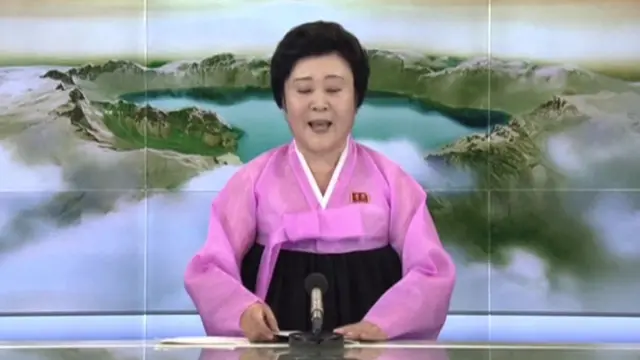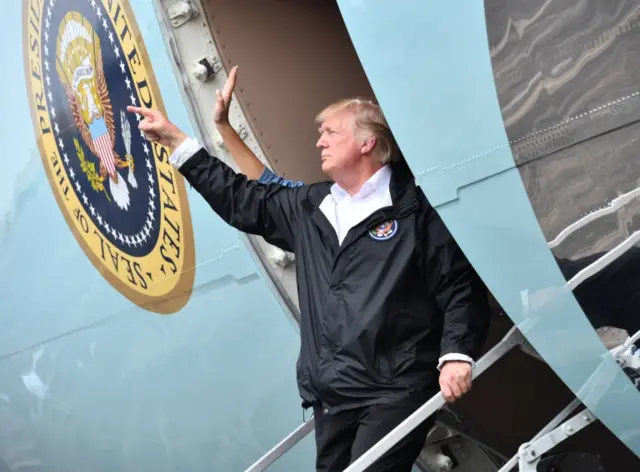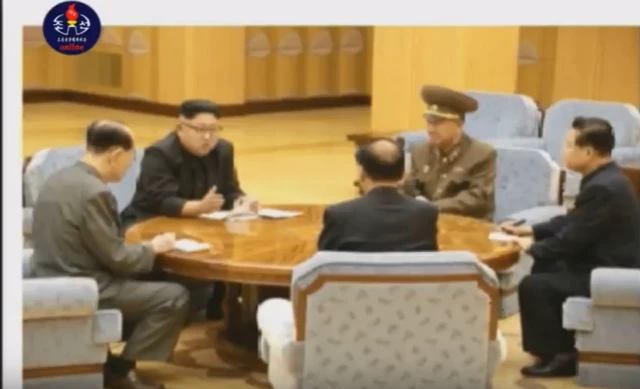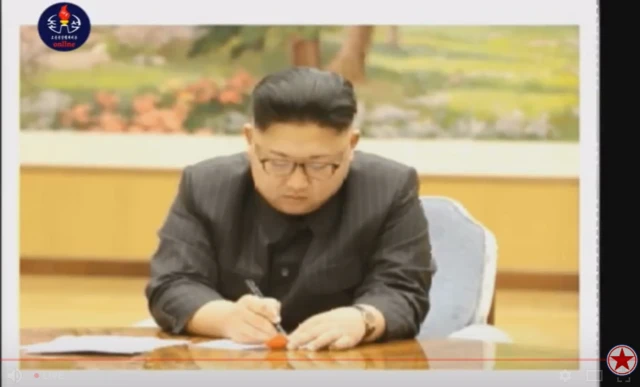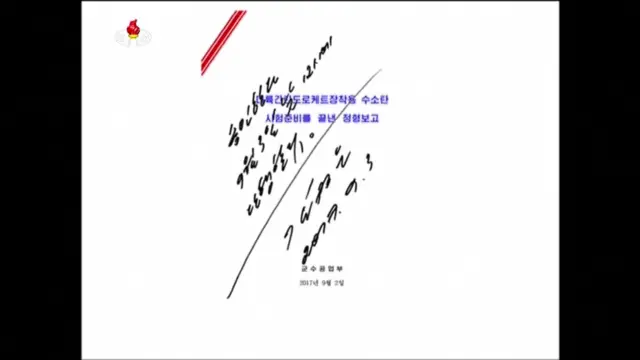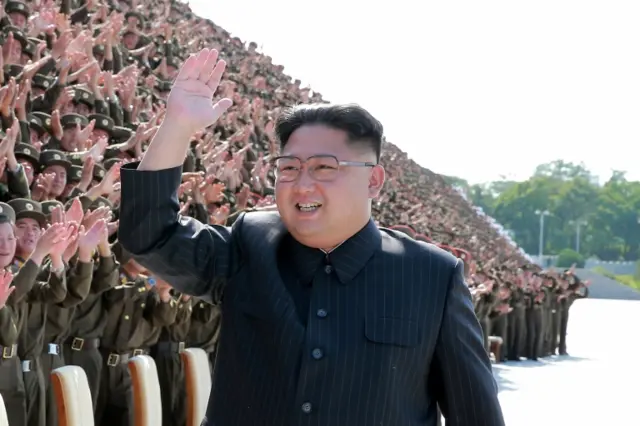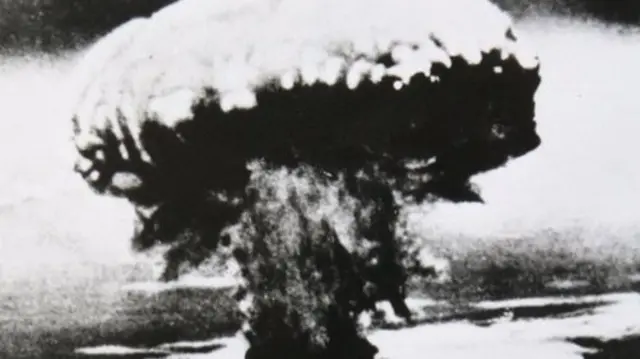What we know so farpublished at 08:26 BST 3 September 2017
If you're just joining us we're covering the global response after North Korea conducted its sixth nuclear test, a provocative breach of sanctions and a major escalation of the rumbling crisis.
Here's what we know so far:
- An artificial earthquake was detected early on Sunday in North Korea, a clear sign of an underground nuclear test.
- A second, smaller tremor was detected shortly afterwards, which may have been structures at the test site collapsing.
- South Korea said the tremor was nearly 10 times more powerful than that caused by the last nuclear test.
- North Korea has issued a statement claiming to have carried out a successful test of a hydrogen bomb, the most powerful weapon ever created.
- The device had an estimated yield of 100 kilotons, that five times more than the bomb dropped on Nagasaki.
- It has also released pictures purporting to show a hydrogen bomb being placed on an intercontinental ballistic missile, the last stage is becoming a genuine nuclear armed state.
- Japan and South Korea have condemned the test.
